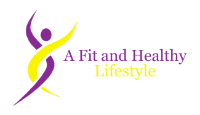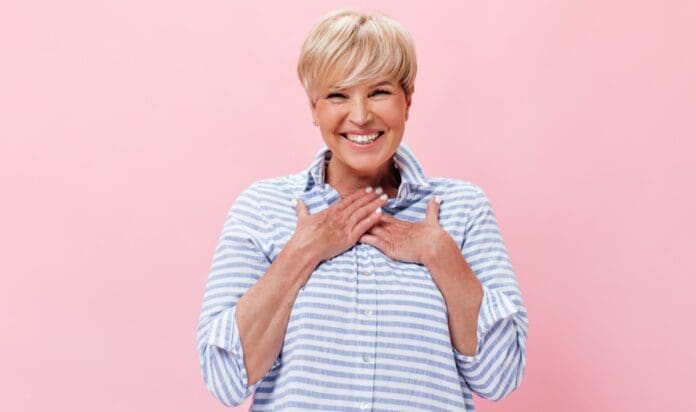Why Multivitamins for Women Over 60 are Important:
Getting older can make some health problems worse, especially for women over 60. A healthy nutritional plan that includes a daily multivitamin for women over 60 and/or supplements can help ensure you get all the nutrients your body needs to keep bones healthy, fight infections, and improve your health in general.
We’ll talk about the different things you should think about before selecting the best daily multivitamin for women and/or supplements for women over the age of 60.
Important Difference Between Water-Soluble and Fat-Soluble Vitamins and Minerals:
Water-Soluble Vitamins:
WARNING:
Water-soluble vitamins are safe, but extremely high doses can be toxic.
Absorption:
Dissolve in water and are readily absorbed into the bloodstream.
Storage:
Not stored in the body, excess is excreted through urine.
Replenishment:
Need to be replenished regularly through your nutrition plan.
Examples:
Vitamin C and all B vitamins (B1, B2, B3, B5, B6, B7, B9, B12).
Fat-Soluble Vitamins:
WARNING:
Fat–soluble vitamins are more prone to toxicity because they are stored in the body’s tissues and can accumulate over time.
Absorption:
Dissolve in fat and require dietary fat for absorption.
Storage:
Stored in body tissues and the liver.
Replenishment:
Don’t need to be replenished as frequently as water–soluble vitamins.
Examples:
Vitamins A, D, E, and K.
General Multivitamins for Women Over 60:
Most daily multivitamins have a mix of vitamins and minerals that the body needs to be as healthy as possible. Also depending on the brand and formula, the exact ingredients may be different.
Women over 60 should take a daily multivitamin and other supplements. Find ones that help your bones, heart, immune system, eyes, and nerves work properly.
When picking the right daily multivitamin and/or other supplements, think about what you like and what your medical history says. You may wish to discuss with your doctor if you need to.
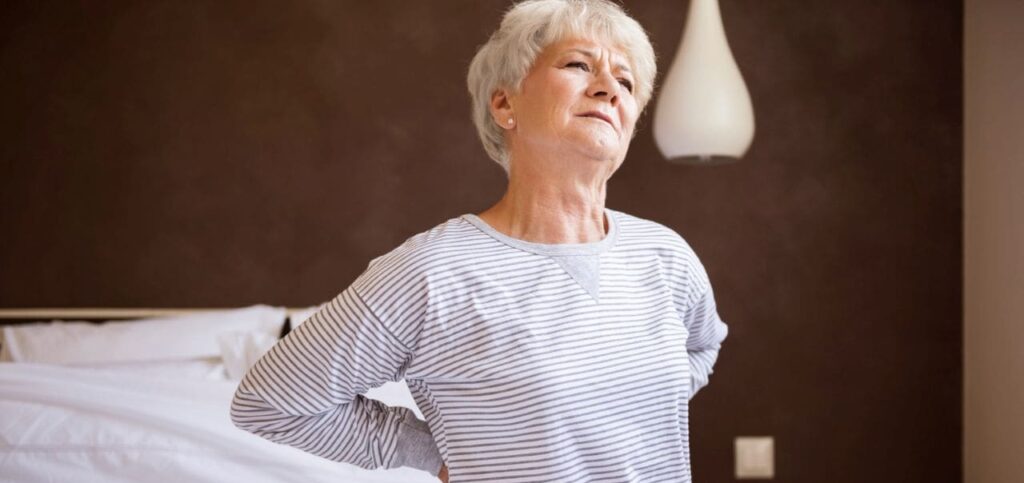
Because hormones play a role in the body, as we age, women experience unique challenges. For instance, women over the age of 60 are more likely to get osteoporosis, which can break bones. Therefore, not getting enough vitamin D and calcium can make you more likely to get osteoporosis.
Common Nutrient Deficiencies in Older Women: Multivitamins for Women Over 60 That Can Help These Deficiencies.

Vitamin B12: (Water Soluble)
It is crucial for nerve cell and blood cell health, DNA synthesis, and preventing neurological problems like memory loss and cognitive decline. Older adults are more susceptible to B12 deficiency due to age-related changes in the stomach and intestines according to YaleMedical. Furthermore, this can be met with a daily multivitamin for women.
Here’s a More Detailed Explanation:
Reduced Absorption:
As people age, the body’s ability to absorb vitamin B12 from food can decline, particularly due to conditions like atrophic gastritis, which affects stomach acid production.
Neurological Issues:
Vitamin B12 is crucial for maintaining a healthy nervous system. Therefore, deficiency can cause symptoms like tingling or numbness in the extremities, memory loss, cognitive decline, and even depression.
Anemia:
Vitamin B12 is vital for red blood cell formation. Deficiency can also lead to megaloblastic anemia, a condition characterized by large, immature red blood cells and fatigue.
Other Health Problems:
B12 deficiency can also contribute to other issues, including impaired bone health, increased risk of falls, and even certain types of dementia.
Dietary Considerations:
Since B12 is primarily found in animal products, older women who may have dietary restrictions (e.g., vegans, vegetarians) or those with certain medical conditions (e.g., celiac disease, Crohn’s) are at higher risk and may need supplements.

Vitamin B6: (Water Soluble)
Daily multivitamins for women over age 60 should include vitamin B6, as it plays a critical role in maintaining overall health and well-being, especially in areas such as bone health and managing age-related changes. It is important for both the immune system and brain health.
This is Why It’s Important:
Bone Health and Osteoporosis Prevention:
Research shows that older women who obtain enough vitamin B6 may have stronger bones and be less likely to break them. Therefore, vitamin B6 is vital for proper bone formation and helps lower levels of homocysteine. If you have high amounts of homocysteine, you are more likely to have osteoporosis and break bones.
Brain Health and Cognitive Function:
Vitamin B6 helps create neurotransmitters, which are chemicals that help influence mood and brain function. Furthermore, some research suggests that getting enough B6 may help your brain work better and lessen your chances of losing cognitive function as you get older. A daily multivitamin for women can help.
Vitamin B6 is Good for the Immune System:
Which is vital for older people who are more likely to get sick. As Healthline explains, vitamin B6 helps create serotonin, a neurotransmitter that has an effect on mood. Some studies have shown that those with low amounts of B6 are more likely to be depressed, especially older adults. Therefore, multivitamins for women over 60 are a great way to meet your needs.
Heart Health:
Vitamin B6 may help lessen the risk of heart disease, which of course is a big issue for older individuals, by lowering levels of homocysteine.
Levels of Energy:
B vitamins, such as B6, assist the body in using food to get energy. This may help battle weariness that comes with age and keep you feeling young.
Keep in Mind:
Women over 60 should get 1.5 mg of vitamin B6 per day. Although many people can get enough B6 from a balanced diet that includes salmon, cow liver, chickpeas, and bananas. But some people may need to take supplements if they don’t get enough of them or have special health demands.
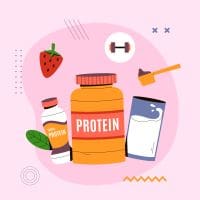
Protein: (Water Soluble)
Older women need more protein to maintain muscle mass, strength, and overall health as they age. This is because protein intake is less efficiently used by the body with age, and higher intake can help offset age-related muscle loss (sarcopenia) and improve physical function. Getting enough protein is very important for keeping your muscles, strength, and capacity to move, especially when you exercise. It also lowers your risk of being weak and hurt.
This is Why Protein is so Important for Women Over 60:
Sarcopenia:
This is the typical loss of muscle that happens as you become older. Therefore, not getting enough protein can make this happen faster, making you weaker, less able to move, and more likely to fall.
To Maintain Muscle:
To keep muscles healthy and fix them when they are hurt, you need protein. When older people have anabolic resistance, their bodies can’t use protein as well to build muscle, so they need to eat more or use a supplement.
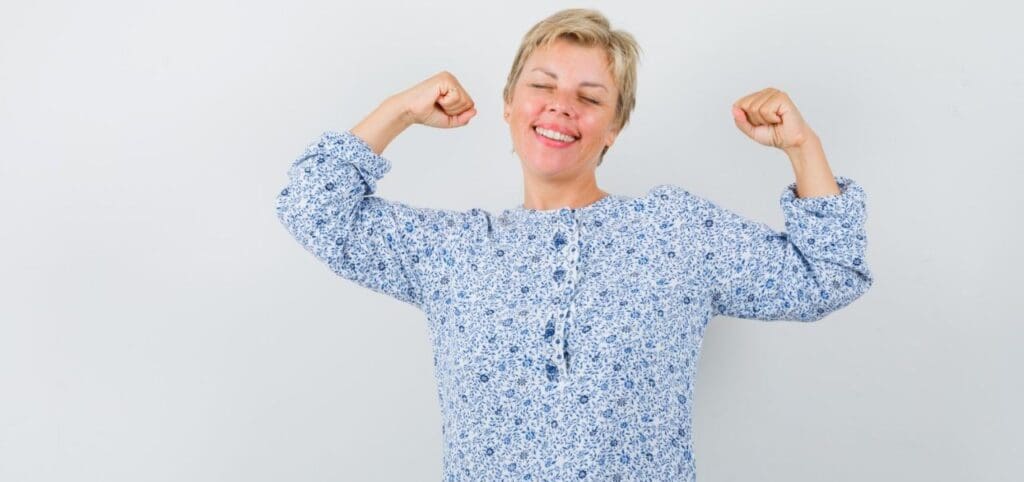
Higher Physical Function:
Older women who eat more protein tend to have stronger muscles, be able to do more physical activities, and have less functional decline.
Lower Risk of Weakness:
Sarcopenia and frailty are related, and getting enough protein can lower your risk of being weak, which means you are weak, walk slowly, and don’t perform much physical activity.

Fiber: (Water Soluble)
As women age, particularly beyond 60, adequate fiber intake becomes increasingly important due to various physiological changes and increased risk for certain health conditions.
Here’s Why Women Over 60 Need Fiber:
Fiber Helps With Digestive Health and Constipation:
It helps keep bowel movements regular and stops constipation, which is a common problem in older adults because their digestive systems slow down. Also, insoluble fiber makes stool bigger, which makes it easier to pass, while soluble fiber makes it softer.
Managing Weight:
Foods high in fiber make you feel full, which can help women eat fewer calories overall. This is especially helpful for women who have trouble managing their weight during menopause and as they get older when their metabolism slows down.
For Your Heart:
Soluble fiber can help lower LDL (“bad”) cholesterol by sticking to it and taking it out of the body. Fiber can also lower blood pressure and inflammation, which are both important for keeping your heart healthy. Cardiovascular disease is the leading cause of death in women.
Control of Blood Sugar:
Fiber, especially soluble fiber, slows down the absorption of glucose into the bloodstream. This keeps blood sugar and insulin levels from rising too quickly, which is important for keeping diabetes risk low and energy levels stable.
Gut Health and the Microbiome:
Fiber is a prebiotic that feeds good gut bacteria and helps keep the gut microbiome healthy. This is important for overall health, immune function, and possibly even better mood and cognitive function.
Lower Risk of Some Diseases:
Eating a lot of fiber may lower your risk of colorectal cancer and may also protect you from other cancers, such as breast cancer. Fiber also helps lower inflammation, which is a factor in the development of long-term diseases.
Recommended Daily Amount:
Women over 60 should try to get 21 grams of fiber every day. The Mayo Clinic says that some experts recommend aiming for at least 25 grams a day, and some even say that women going through menopause should aim for up to 30 grams a day to get the most health benefits.
Sources of Food:
Fruits, vegetables, whole grains, legumes, nuts, and seeds are all plant-based foods that are high in fiber. Supplements are available to offset fiber needs.
Important to Know:
If you want to eat more fiber, do it slowly so your stomach doesn’t hurt. It’s also important to drink enough water because fiber needs water to work properly.
Multivitamins for Women Over 60 Continued:
Magnesium: (Water Soluble)

When it comes to daily multivitamins for women over 60, magnesium is important for supporting bone health, heart function, and cognitive health. It helps maintain strong bones, potentially reducing the risk of fractures and osteoporosis, and aids in regulating heart rhythm and blood pressure. Additionally, magnesium may improve sleep, reduce anxiety, and support cognitive function.
Let’s Look at It More Closely:
Bone Health:
Older women are more likely to suffer osteoporosis; thus, magnesium is good for bones. Taking magnesium supplements may help make bones stronger and less likely to break.
Magnesium is Good for Your Heart:
It helps it beat regularly and keeps your blood pressure low. Therefore, higher levels of magnesium are connected to lower levels of inflammatory markers that are linked to heart disease.
Cognitive Function:
Magnesium helps nerve impulses in the brain and may help protect brain cells. Therefore, getting enough magnesium may help you do better on tests of your brain’s ability to think and may even slow down the deterioration of your brain’s ability to think.
Magnesium Can Aid:
With anxiety symptoms. It can also help you sleep and relax your mind and body.
Other Benefits:
The National Library of Medicine says that magnesium is involved in more than 300 biochemical activities in the body, including how nerves and muscles work. It also helps keep the immune system healthy.
Important to Know:
As women get older, their bodies absorb less magnesium from their diets. They are also more likely to suffer health problems that last a long time or use medications that affect their magnesium levels.
Zinc: (Fat Soluble)

Zinc is an essential trace mineral crucial for a wide range of bodily functions, playing a particularly significant role in maintaining health as women age.
Important Key Benefits:
Strong Immune System:
Zinc is important for the immune system to perform well. It helps immune cells like lymphocytes, neutrophils, and macrophages develop and operate, which helps fight off infections caused by bacteria and viruses. Also, a small amount of zinc deficiency can impair the immune system, making people more likely to suffer infections like pneumonia, which is a serious problem for older individuals. Zinc also helps lessen oxidative stress and inflammation, which are two things that make the immune system weaker as people become older.
Less Oxidative Stress and Inflammation:
As we get older, we experience “inflammaging,” which is long-term low-grade inflammation. It makes you more likely to get heart disease, type 2 diabetes, obesity, and several malignancies when you are older. Zinc can lower the amounts of inflammatory proteins and indicators in the body since it has anti-inflammatory properties. Zinc fights free radicals and oxidative stress, which protects cells from damage. This helps reduce inflammation even further.
Bone Health:
Zinc is crucial for making and keeping bones strong since it aids with the process of mineralization and bone production. Women are more likely to suffer osteoporosis and break bones after menopause because their estrogen levels go down. This highlights how vital it is to get enough zinc to keep your bones healthy. Studies show that postmenopausal women with lower levels of zinc in their blood are more likely to get osteoporosis.
Cognitive Function and Brain Health:
Zinc helps make and manage brain messages, which could alter how you feel. It has something to do with how neurotransmitters work and how the brain works. Some studies suggest that zinc may help prevent cognitive impairment associated with aging and neurodegenerative illnesses such as Alzheimer’s.
Taste and Smell:
Zinc keeps our taste buds and smell receptors healthy, which lets us taste and smell things.
Producing New Cells:
Zinc is crucial for producing new cells, including collagen and other tissues that are needed to fix damaged cells and speed up the healing of wounds.
Insulin Release:
Zinc helps the body store and release insulin, which helps keep blood sugar levels stable. This is vital for controlling things like type 2 diabetes.
Your Skin:
Zinc is good for your skin and may help with some skin problems.
Vision Support:
Zinc is good for your eyes, especially the retina, which is where you see. It might also help reduce the advancement of age-related macular degeneration (AMD), which is a primary cause of vision loss.
In short, multivitamins for women over 60 need zinc:
Women over 60 need to get enough zinc to keep their immune systems robust, lower chronic inflammation, and support strong bones and brain function. Zinc may also lower their risk of having some diseases that come with age.

Omega-3 Fatty Acids: (Fat Soluble)
Omega-3 fatty acids are crucial for women over 60 due to their benefits for heart health, brain function, and overall well-being. They also help reduce the risk of heart disease by lowering triglycerides and blood pressure. Additionally, omega-3s, particularly DHA, are vital for maintaining cognitive function and memory and potentially reducing the risk of Alzheimer’s disease and other dementias. They also support healthy skin and immune function and may help alleviate menopausal symptoms like night sweats.
Here is a more in-depth breakdown:
Health of the Heart:
EPA and DHA, two types of omega-3s, can lower triglyceride levels, which are a type of fat in the blood. Also, they might help lower the chance of getting arrhythmias, which are heartbeats that are not normal. Omega-3s may lower the risk of heart disease by slowing the buildup of plaque in arteries. They might also help lower blood pressure a little bit.
Brain Health:
A lot of fat makes up the human brain, and DHA is one of the most important types.
Omega-3s help with memory, focus, and thinking in general. Also, they might help lower the risk of Alzheimer’s disease and cognitive decline that comes with getting older. Omega-3s may also help keep your mood stable and deal with stress and anxiety.
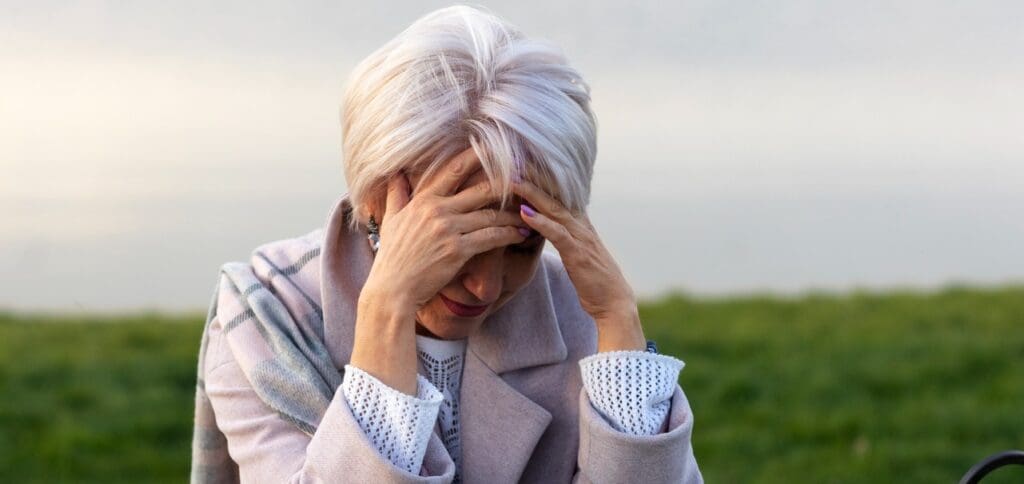
Age-Related Decline:
Older people are more likely to have cognitive decline and heart disease, which makes omega-3s even more important.
Lower Conversion Rates:
As women get older, they are less able to turn ALA (which is found in plants) into EPA and DHA. This makes it very important for them to get these fatty acids from food or supplements.
More Benefits:
Omega-3s help keep skin healthy by making the skin barrier stronger and less dry. They help make the immune system stronger. Taking omega-3 supplements may help with night sweats that happen during menopause. Some studies indicate a possible function in diminishing the risk of specific cancers. They might also help keep bones healthy by making older women’s bones denser.
Iron: (Water Soluble)

When it comes to daily multivitamins for women over 60, iron is crucial. It plays a vital role in several essential bodily functions and impacts overall health and well-being per WebMD.
Why Iron Is So Important:
Energy and Health:
Iron is necessary for making hemoglobin, a protein in red blood cells that moves oxygen around the body. Therefore, getting enough oxygen to muscles and organs helps keep energy levels up and fight fatigue and weakness, which are common problems in older people. Iron is also important for making energy in cells, which helps you feel more energetic and less sluggish.
Keeping Your Brain Working Well:
Studies indicate a correlation between iron deficiency and cognitive decline, encompassing dementia, in the older population. Iron helps carry oxygen to the brain, and not having enough iron can cause brain iron deficiency, which can make it harder to remember things and pay attention.
Helping the Immune System Work:
Iron is very important for making and changing immune cells, such as lymphocytes, macrophages, and neutrophils. Therefore, having enough iron in your body helps keep your immune system strong, which makes older people less likely to get sick.
Bone Health:
Iron is necessary for making bones and keeping their density. Iron deficiency has been connected to low bone mass and a higher risk of fractures, which is a big worry for older people.
Cardiovascular Health:
Iron deficiency, even without anemia, has been linked to heart disease, such as a higher risk of coronary artery disease, heart attack, and death in people who already have coronary artery disease. Therefore, to make healthy red blood cells, the body needs the right amount of iron. This helps the heart pump blood well.
Things that make older women low in iron:
Less Iron Absorption:
As women get older, their bodies might not be able to absorb iron as well because their digestive health changes, like when their stomach acid levels drop.
Medications:
Furthermore, older people often take medicines like antacids or proton pump inhibitors that make it even harder for the body to absorb iron.
Dietary Factors:
Also older women who eat very few iron-rich foods or follow strict diets are more likely to be deficient.
Loss of Blood:
Conditions like ulcers, stomach problems, or certain medications that cause long-term blood loss can use up iron stores.
Important Things Women Should Think About:
Women over 60 should get 8 mg of iron per day in their daily multivitamin for women, which is the Recommended Dietary Allowance (RDA).
Iron is important, but too much of it can be bad for you and cause iron overload, which can hurt your organs.
Blood tests to check iron levels are a good idea, especially for older women, to make sure they get enough iron without getting too much.
It is important to eat a balanced diet that includes both heme and non-heme iron sources. Iron supplements may be taken if needed.
Women over 60 can take steps to make sure they are getting enough iron and promoting healthy aging by learning about how important iron is for their overall health, energy, brain function, and immune system strength. A daily multivitamin can help.
Summary: Multivitamins for Women Over 60
Over time, our body’s defenses and the ability to absorb nutrients from food get weaker. Because of this, older women might want to take a daily multivitamin for women and/or other supplements to
